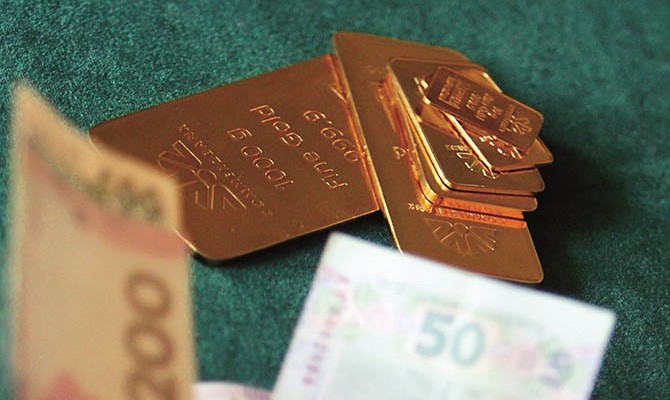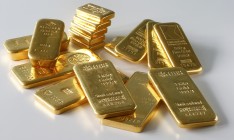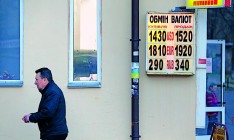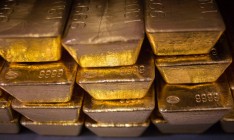Economy
InvestmentsNBU sold a third of its gold reserves at a loss

Having accumulated the maximum volume of gold in international reserves for the first time in its history the National Bank of Ukraine started selling the precious metal. During October the bank sold 14.3 t of gold, thereby reducing its reserves by 35% to 26.1 t, according to the International Monetary Fund. In the view of this and as a result of decline of the prices for the precious metal on international markets, the volume of gold reserves of the NBU in monetary terms dropped by US $580 mn to US $988.7 mn.
It was the second month this year and in general over the last decade that the NBU sold gold. In May, for the first time since the summer of 2004, the regulator began selling its gold reserves. Before that it increased its gold reserves. In ten years – from August 2004 to the end of the first quarter of 2014 – the NBU stashed away approximately 27 t of gold. Back in April the NBU could boast of about a historic maximum of its gold reserves.
Currency fever
The NBU explains that the purpose of selling gold is the optimization of its structure of international reserves. “This is due to synchronization of the structure of international reserves and the foreign position of the country,” reported the press service of the National Bank of Ukraine. The NBU decided to increase the share of the U.S. dollar in the reserve basket, because, as it was said in the statement, the U.S. dollar accounts for 70.3% of transactions in the structure of the trade balance. Also, 77.7% of Ukraine’s gross foreign debt is denominated in the U.S. currency.
In addition, representatives of the NBU add that recently there has been a considerable volatility on global currency markets associated with strengthening of the U.S. dollar against other world currencies. “Therefore, the NBU decided to reduce the share of gold in foreign exchange reserves to 8%. To this end, the institution sold 0.46 mn troy ounces (14.3 t – Capital) of gold for U.S. dollars on international markets,” reads the statement of the press service of the NBU. Prior to the sale, the share of gold was 9.6% in the reserves of the NBU, but after the transaction it fell to 7.9%. For comparison, around the world this figure is an average of 11.7%, in emerging economies – 4.4%, according to the IMF.
Yet, experts have a more prosaic explanation for the NBU’s decision – namely, the desperate need for hard currency. There was no point for the NBU to sell gold as an investment asset. Chief of the Department for Debt Instruments in the Local Market at the Concorde Investment Company Yuriy Tovstenko says from the investment point of view the sale of gold in October was unprofitable as last month the price of gold was at its lowest level since 2010. The average price of gold last month was US $1,222.5 per troy ounce, according to the World Gold Council.
The NBU made major purchases of gold over the previous two years, when prices were much higher. In particular, it bought 7.44 t in 2012, when the average price of gold was US $1,669 per troy ounce. It bought another 6.84 t in 2013, when the average price was at the level of US $1,411.2 per troy ounce. The drop in price was due to the strong performance of the U.S. economy and expectations of an increase of the Federal Reserve discount rate, said Tovstenko. However, in his opinion, it is hard to call the sale irrational, because there is a high probability that gold prices will slide even lower.
Payback time
Most likely the NBU was in need of foreign currency liquidity. “The sale of gold was caused by the need to increase liquidity of reserves in order to level fluctuations of the hryvnia on the foreign exchange market,” said Tovstenko. In addition, the NBU has an obligation to provide Naftogaz of Ukraine with currency to make payments for gas. On November 4 the Cabinet of Ministers authorized the national company to use funds from the NBU reserves (US $3.1 bn) set aside to repay the debt for supplied gas to Gazprom. On the same day Naftogaz paid the Russian monopolist US $1.45 bn for gas purchased in November–December 2013. Another US $1.65 bn shall be paid by the end of December for the gas purchased in April–June 2014.
In addition, Naftogaz has to make a prepayment for delivery of gas in November. Gazprom billed Naftogaz for November at the discount price of US $378. Now, having received the bill (on Friday – Capital), the Ukrainian side will have to make an advance payment in the nearest days,” said Russia’s Energy Minister Alexander Novak. He added that Ukraine was billed for 2 bn cubic m of gas, so the payment should be US $756 mn.







 of the agreement of syndication with Financial Times Limited are strictly prohibited. Use of materials which refers to France-Presse, Reuters, Interfax-Ukraine, Ukrainian News, UNIAN agencies is strictly prohibited. Materials marked
of the agreement of syndication with Financial Times Limited are strictly prohibited. Use of materials which refers to France-Presse, Reuters, Interfax-Ukraine, Ukrainian News, UNIAN agencies is strictly prohibited. Materials marked  are published as advertisements.
are published as advertisements.